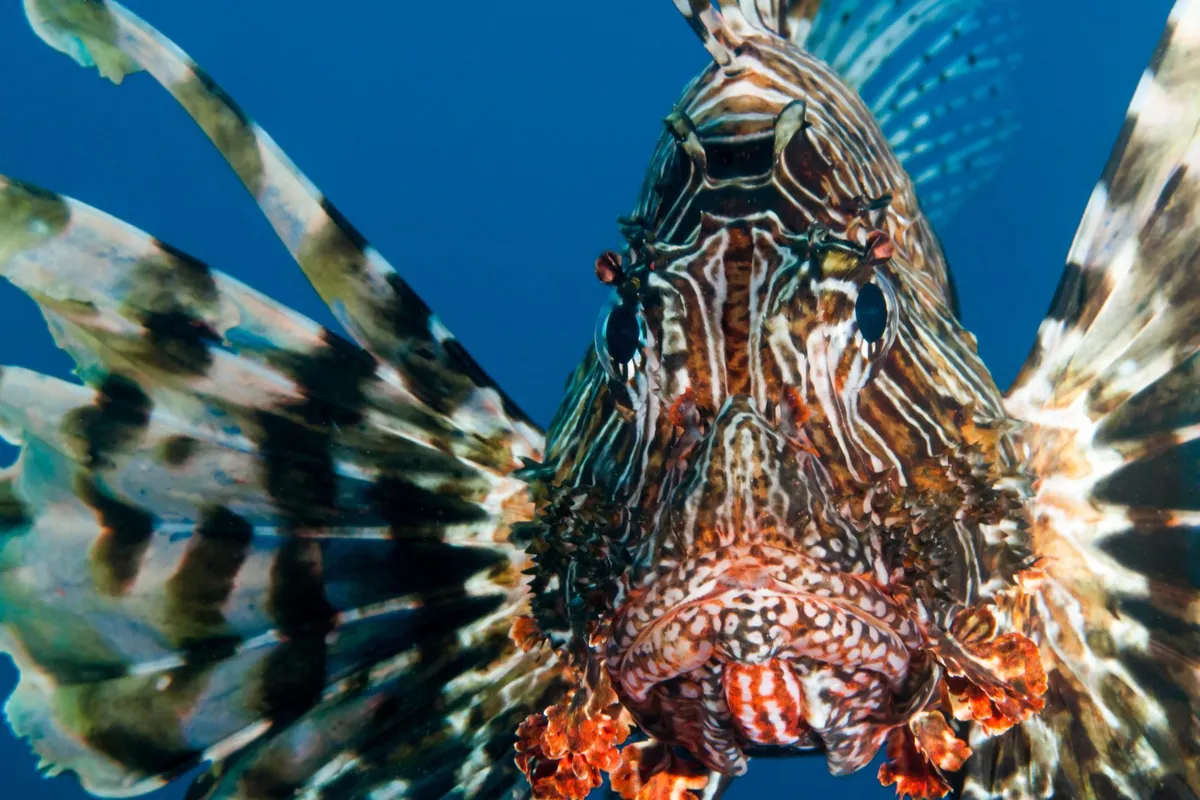Lionfish have spread rapidly across the Mediterranean Sea since they first invaded the region around 10 years ago, scientists say.
In a new study, researchers from Wageningen University and Research, the Netherlands, found the lionfish (Pterois miles) has even spread to waters that were previously thought to be too cold for the species.
“After years studying these predators, I find it amazing how they can easily adjust to so many different environments and be successful in areas that are so different from the ones where they evolved,” says lead author Davide Bottacini in a statement.
- 10 deadliest sea creatures
- 10 most venomous animals
- 10 Pokémon characters inspired by real wild animals
Lionfish (Pterois miles and Pterois volitans) are native to the Indo-Pacific but they’ve spread quickly to other places, including to the Mediterranean, Atlantic, Caribbean and the Gulf of Mexico. The study, published in the open-access journal NeoBiota, also highlights the potential ecological impacts of this swift invasion to the Med.
“Lionfish have no known predators and reproduce all year long; a mature female releases roughly two million eggs a year,” according to the NOAA website, making them particularly successful at invading new ecosystems.
These fish are generalist predators – meaning they eat pretty much anything – and can wipe out local fish stocks, including important species, that might not flee as they haven’t encountered these hunters before.

Lionfish are rather ostentatious fish – and also one of the deadliest sea creatures in the ocean. They have dramatic stripes and a fan-like cascade of fins that scream “watch out”. Along its fins are venomous spines that can deliver a nasty sting, which “can last for days and cause extreme pain, sweating, respiratory distress, and even paralysis,” says NOAA.
These spines are purely for self-defence. When hunting, lionfish swim slowly along and ambush their prey. “It is always impressive to see how such a flamboyant (and to us conspicuous) predator can approach its prey without being noticed,” says Bottacini.
NOAA’s website adds that “scientists fear that lionfish will also kill off helpful species such as algae-eating parrotfish, allowing seaweed to overtake the reefs,” and notes that they also put pressure on native species by competing with them for food and territory.
Their spread is becoming increasingly problematic in the Mediterranean: a unique and highly biodiverse ecosystem home to more than 11,000 animal species, according to the study authors. These lionfish originate from the Red Sea and probably entered the Mediterranean through the Suez Canal.
In the fight against lionfish, the study highlights the importance of citizen science. When members of the public report their lionfish sightings, it gives valuable information to researchers who are studying the best way to protect ecosystems and control the invasion of non-native species.
More marine stories
- Sperm whales have been seen pooing on orcas. But why?
- Watch: Astonishing ‘explosion of life’ coral spawning in Cambodia stuns scientists
- 100 new ocean species discovered off the coast of New Zealand
- There’s a fish in Tasmania with hands instead of fins, and scientists are about to save it from extinction